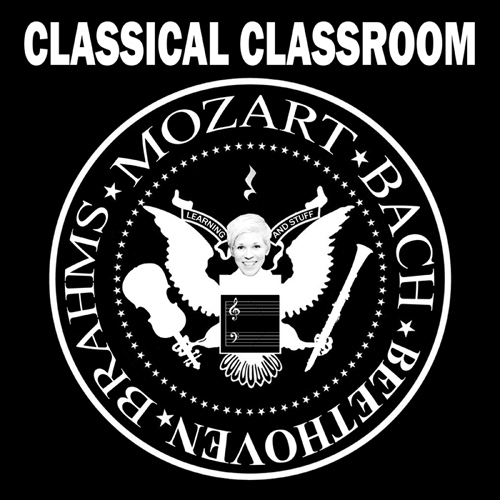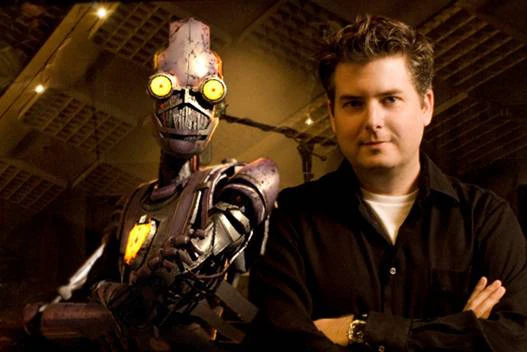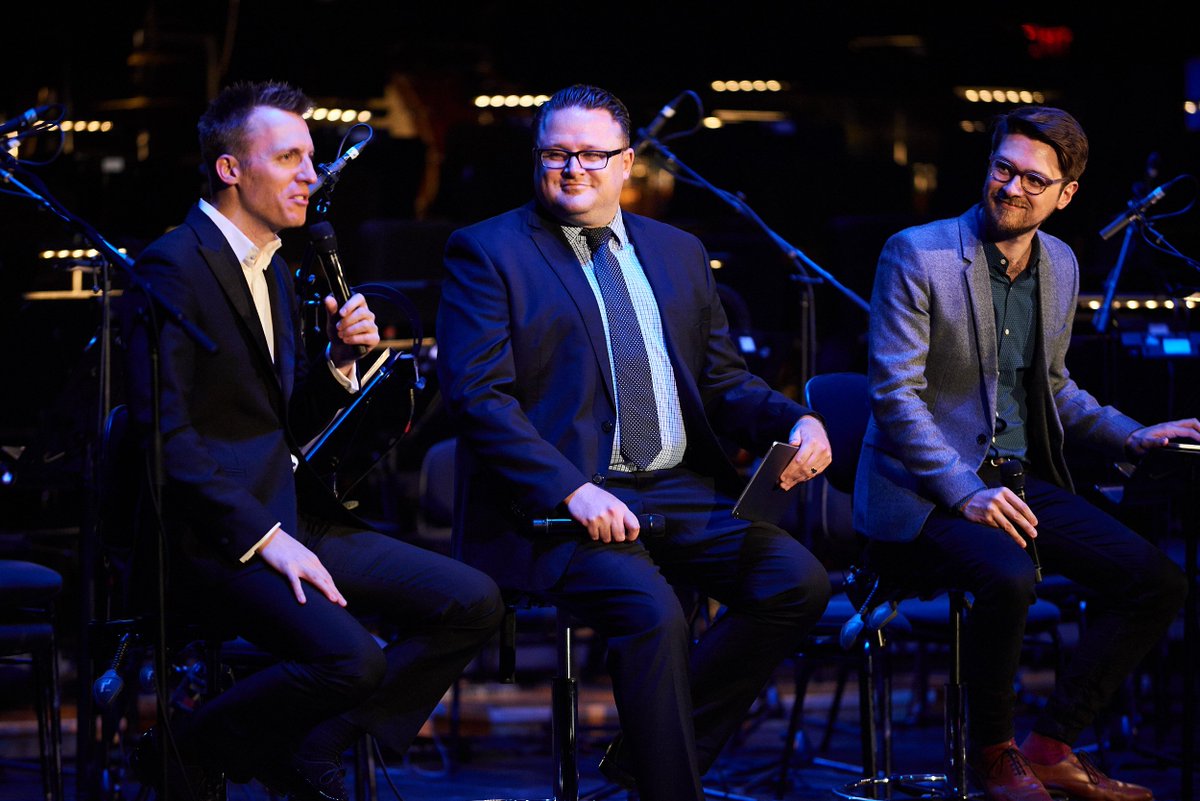Although I try to keep this blog about illustration and comics, I don't mind adding off-topic posts from time to time.
And honestly, I believe this topic has a lot to do with my elected area of interest.
Art isn't created in a vacuum.
Drawing can be an intense mental and physical activity, one that requires time and a certain state of mind.
Many artists I know reach that state of mind by listening to music or talk radio.
An awful lot of artists are addicted to podcasts and I'm no different.
With this post I hope to provide some food for hungry ears.
--
My last post was a dry list of artists I like to call "the impeccables", people whom I regard almost above criticism.
But not all the artists I look up in admiration for the quality of their output are visual artists.
If I had to name the greatest artists working today in any field, composer John Williams would certainly be one of them, probably at the top, certainly in the top three.
This is not a post about him (there is plenty of resources to discover, explore and examine his impressive body of works), but about PODCASTS on John Williams, and more specifically about his seminal scores for the Star Wars movies.
If any reader out there shares my fascination with the music of John Williams, the following links will provide many hours of entertaining education (I didn't do the math, but all these podcasts together clock around sixty hours!!)
A good place to start, is

Hosting the program is Dacia Clay, self-admittedly out of her element when it comes to classical music. Her "ignorance" (for lack of a better term) is actually one of the show's assets: musicians, musicologists and other experts engage in a conversation with Dacia acting as teachers to her student and explain a particular piece of music or another well-defined musical topic.
This predicament allows the less musically educated listeners to be taken by the hand and discover the world of classical music together with the host.
Classical Classroom - Leitmotifs (or Leitmotiven) in Star Wars
Classical Classroom - The Force Awakens
A somewhat similar format was that of

A show that ran on the Rebel Force Radio site for about 40 episodes.
The hosting duo is composed of radio host Jimmy “Mac” McInerney and musician/actor/sound designer David W. Collins, who assumes the role of the lecturer, but the similarities with the former podcast stop pretty much there.
Both hosts are big Star Wars fans and the show is featured in a Star Wars fan site. This perspective is an important element in the make of the show. David Collins does his best to explain and clarify a lot of the information that could be lost to the more casual listener, but fan discussions these are and, at times, proudly so.
I must also say that Jimmy Mac, albeit not contributing with intellectual insights, is a good host too, with an appreciation for behind-the-scenes Star Wars lore. The only complaint I have is that his growling, sympathetic voice is not matched by an equally diverse vocabulary.
On the positive side: this is the only show who managed to cover SW episodes I to VII, plus a number of side projects.
http://www.rebelforceradio.com/shows/2015/10/1/star-wars-oxygen-vol-1
http://www.rebelforceradio.com/shows/2015/10/1/star-wars-oxygen-vol-2
http://www.rebelforceradio.com/shows/2015/10/1/star-wars-oxygen-vol-3
http://www.rebelforceradio.com/shows/2015/10/1/star-wars-oxygen-vol-4
http://www.rebelforceradio.com/shows/2015/10/1/star-wars-oxygen-vol-5


In this podcast Collins expands his focus to the whole repertoire of film, television and video games music, not just Star Wars.
But as a massive John Williams fan, he could not let go the opportunity to cover once again the original 1977 film, which received a lush 6-episodes treatment.
Equally well produced, are the podcasts from

The show is hosted by Andrew Pogson, Dan Golding and Nicholas Buc, three aussies linked to the Melbourne Symphony Orchestra. Albeit the panel consists entirely of professional musicians, the discussions aren't hard to follow at all for the uneducated listeners. The trio keeps a light and enthusiastic tone, cracking a joke every now and then.
http://www.artofthescore.com.au/podcast/2017/5/24/episode-7-star-wars-part-1
http://www.artofthescore.com.au/podcast/2017/6/9/episode-8-star-wars-part-2
http://www.artofthescore.com.au/podcast/2017/7/4/episode-9-star-wars-part-3
http://www.artofthescore.com.au/podcast/2018/4/3/episode-15-the-force-awakens-part-1
http://www.artofthescore.com.au/podcast/2018/5/11/episode-16-the-force-awakens-part-2
But even if the quality of Art of the Score is pretty high, in my book the very best podcasts on Star Wars have been the episodes from the show

Their podcast is extremely good, albeit on the nerdy side as the two musician-composer brothers really enjoy getting into the nitty-gritty of music theory with their in-depth analysis.
But they provide a lot of material, cueing in lots of bare piano examples to explain things like melody and harmony, lots of soundbites from interviews, or from the movies they analyze.
The other podcasts do that too, but here we are on another level.
They also covered the score to the original 1977 Star Wars in seven lengthy episodes, which I've already listened countless times. I'd place them up there with Howard Goodall's or Leonard Bernstein's TV programs on music.
http://underscorepodcast.blogspot.com/2018/06/prologue-long-time-ago.html
http://underscorepodcast.blogspot.com/2018/06/7m1-star-wars-main-title.html
http://underscorepodcast.blogspot.com/2018/07/7m2-themes-of-star-wars.html
http://underscorepodcast.blogspot.com/2018/07/7m3a-sw-spotting-session-part-i.html
http://underscorepodcast.blogspot.com/2018/07/interlude-princess-leias-theme.html
http://underscorepodcast.blogspot.com/2018/07/7m3b-spotting-session-for-star-wars.html
http://underscorepodcast.blogspot.com/2018/08/7m4-star-wars-commentary.html
Happy listening (and learning)!
And honestly, I believe this topic has a lot to do with my elected area of interest.
Art isn't created in a vacuum.
Drawing can be an intense mental and physical activity, one that requires time and a certain state of mind.
Many artists I know reach that state of mind by listening to music or talk radio.
An awful lot of artists are addicted to podcasts and I'm no different.
With this post I hope to provide some food for hungry ears.
--
My last post was a dry list of artists I like to call "the impeccables", people whom I regard almost above criticism.
But not all the artists I look up in admiration for the quality of their output are visual artists.
If I had to name the greatest artists working today in any field, composer John Williams would certainly be one of them, probably at the top, certainly in the top three.
This is not a post about him (there is plenty of resources to discover, explore and examine his impressive body of works), but about PODCASTS on John Williams, and more specifically about his seminal scores for the Star Wars movies.
If any reader out there shares my fascination with the music of John Williams, the following links will provide many hours of entertaining education (I didn't do the math, but all these podcasts together clock around sixty hours!!)
A good place to start, is
Classical Classroom

Hosting the program is Dacia Clay, self-admittedly out of her element when it comes to classical music. Her "ignorance" (for lack of a better term) is actually one of the show's assets: musicians, musicologists and other experts engage in a conversation with Dacia acting as teachers to her student and explain a particular piece of music or another well-defined musical topic.
This predicament allows the less musically educated listeners to be taken by the hand and discover the world of classical music together with the host.
She dedicated two episodes to the music of Star Wars.
Classical Classroom - Leitmotifs (or Leitmotiven) in Star Wars
Classical Classroom - The Force Awakens
A somewhat similar format was that of
Star Wars Oxygen

A show that ran on the Rebel Force Radio site for about 40 episodes.
The hosting duo is composed of radio host Jimmy “Mac” McInerney and musician/actor/sound designer David W. Collins, who assumes the role of the lecturer, but the similarities with the former podcast stop pretty much there.
Both hosts are big Star Wars fans and the show is featured in a Star Wars fan site. This perspective is an important element in the make of the show. David Collins does his best to explain and clarify a lot of the information that could be lost to the more casual listener, but fan discussions these are and, at times, proudly so.
I must also say that Jimmy Mac, albeit not contributing with intellectual insights, is a good host too, with an appreciation for behind-the-scenes Star Wars lore. The only complaint I have is that his growling, sympathetic voice is not matched by an equally diverse vocabulary.
On the positive side: this is the only show who managed to cover SW episodes I to VII, plus a number of side projects.
Here below are the links to the first episodes:
http://www.rebelforceradio.com/shows/2015/10/1/star-wars-oxygen-vol-1
http://www.rebelforceradio.com/shows/2015/10/1/star-wars-oxygen-vol-2
http://www.rebelforceradio.com/shows/2015/10/1/star-wars-oxygen-vol-3
http://www.rebelforceradio.com/shows/2015/10/1/star-wars-oxygen-vol-4
http://www.rebelforceradio.com/shows/2015/10/1/star-wars-oxygen-vol-5
For the remainder of the series, check the following link:
http://www.rebelforceradio.com/shows/?category=SW%3A+Oxygen
Star Wars Oxygen has stopped in 2016, but host David Collins has returned in 2018 with a new podcast, this time hosting solo, called The Soundtrack Show.

In this podcast Collins expands his focus to the whole repertoire of film, television and video games music, not just Star Wars.
But as a massive John Williams fan, he could not let go the opportunity to cover once again the original 1977 film, which received a lush 6-episodes treatment.
The podcasts are beautifully produced.
Art of the Score

The show is hosted by Andrew Pogson, Dan Golding and Nicholas Buc, three aussies linked to the Melbourne Symphony Orchestra. Albeit the panel consists entirely of professional musicians, the discussions aren't hard to follow at all for the uneducated listeners. The trio keeps a light and enthusiastic tone, cracking a joke every now and then.
The show covered both the 1977 classic Star Wars
http://www.artofthescore.com.au/podcast/2017/5/24/episode-7-star-wars-part-1
http://www.artofthescore.com.au/podcast/2017/6/9/episode-8-star-wars-part-2
http://www.artofthescore.com.au/podcast/2017/7/4/episode-9-star-wars-part-3
as well as 2015's The Force Awakens.
http://www.artofthescore.com.au/podcast/2018/4/3/episode-15-the-force-awakens-part-1
http://www.artofthescore.com.au/podcast/2018/5/11/episode-16-the-force-awakens-part-2
But even if the quality of Art of the Score is pretty high, in my book the very best podcasts on Star Wars have been the episodes from the show
Underscore
hosted by the brothers Marty and William Brueggeman.
Their podcast is extremely good, albeit on the nerdy side as the two musician-composer brothers really enjoy getting into the nitty-gritty of music theory with their in-depth analysis.
But they provide a lot of material, cueing in lots of bare piano examples to explain things like melody and harmony, lots of soundbites from interviews, or from the movies they analyze.
The other podcasts do that too, but here we are on another level.
They also covered the score to the original 1977 Star Wars in seven lengthy episodes, which I've already listened countless times. I'd place them up there with Howard Goodall's or Leonard Bernstein's TV programs on music.
http://underscorepodcast.blogspot.com/2018/06/prologue-long-time-ago.html
http://underscorepodcast.blogspot.com/2018/06/7m1-star-wars-main-title.html
http://underscorepodcast.blogspot.com/2018/07/7m2-themes-of-star-wars.html
http://underscorepodcast.blogspot.com/2018/07/7m3a-sw-spotting-session-part-i.html
http://underscorepodcast.blogspot.com/2018/07/interlude-princess-leias-theme.html
http://underscorepodcast.blogspot.com/2018/07/7m3b-spotting-session-for-star-wars.html
http://underscorepodcast.blogspot.com/2018/08/7m4-star-wars-commentary.html
Happy listening (and learning)!







